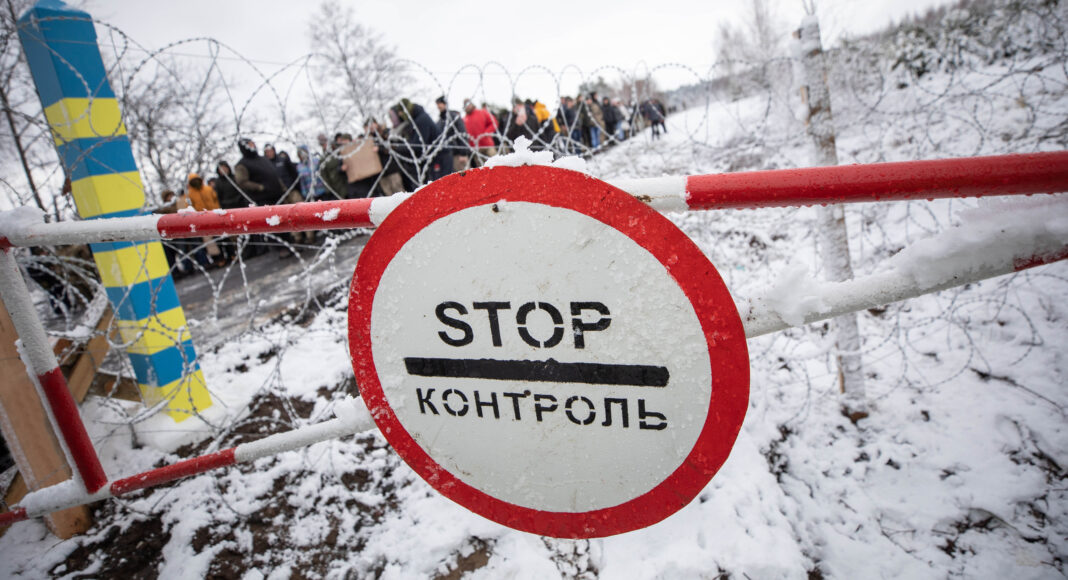Tymofiy Mylovanov, Ukraine’s former Minister of Economic Development, Trade and Agriculture and current president of the Kyiv School of Economics, appeared on the Stigler Center’s podcast Capitalisn’t to discuss alternatives to Russian economic sanctions.
Democracy is paid for in lives, said Ukrainian economist Tymofiy Mylovanov in a recent podcast interview with Luigi Zingales and Bethany McClean. Mylovanov pointed out that violence was how US and Western European nations won their freedom hundreds of years ago.
“We have to pay too. We didn’t just inherit it when the Soviet Union collapsed.”
Nonetheless, Mylovanov argued that Western countries should consider a myriad of options to boost Ukraine and punish Russia beyond the current sanctions, or else potentially face even more global instability.
Mylovanov pointed out an important tactic to slow Russia’s aggression: disrupt the equipment necessary to run cyber and information operations. “It’s more important to identify the critical, the weakest links in supply chains where the technology that Russia has would take years to develop on their own if they’re cut off.”
Though Mylovanov expressed frustration at the lack of a stronger response from European nations. For example, the fact that companies in Germany, France, and Italy are still getting equipment into Russia. To be sure, there is a gray market for military equipment, including software, Mylovanov says. Oftentimes equipment is dual-purpose, and it’s difficult to monitor whether something will be used in a hospital or on the battle ground. Then there are intermediary distributors of such equipment, which may have a stockpile they can sell even if the producer of the equipment has cut them off. There are myriad ways to get things into a country’s hands during wartime.
Nonetheless, blocking Russia from crucial informational and military equipment should be a top priority, Mylovanov says, especially when you consider that Russia has already engaged in warfare with NATO countries, even if it’s not the type of war waged in Ukraine. He refers to cyber warfare, information operations, political warfare, and corruption as examples of Russian aggression in NATO countries.
According to Mylovanov, Western sanctions on Russia for its invasion of Ukraine are largely political: symbolic acts that lack the impact they purport to have. In fact, he says that believing the sanctions will result in the ousting of Putin, whether by election or uprising, is “a fantasy.”
“If anything there will be a movement in the opposite direction,” he says, while making an exception for potential oil and gas embargoes.
Not to mention, he said, the fact that Russia can bypass some sanctions by going through more cooperative countries, such as the Republic of Georgia. (Less so China, because Chinese businesses are hesitant to jeopardize their relationships in the broader global marketplace, he says.) Georgia is also one of the main countries Mylovanov cited as sending technology and equipment to Russia.
Mylovanov argues that Russian sanctions are largely symbolic, re: ineffective. To Mylovanov, this shows the lack of seriousness with which much of Europe has taken the conflict. “For the first week, everyone felt that [Ukraine] will just collapse,” he says.
Mylovanov also suggests a less expensive alternative to sanctions: that Western nations instead do more to equip Ukraine militarily. “What you really need is hidden equipment provided by Bosch or high-precision software provided by French companies to operate your tanks or missiles, and that doesn’t cost that much. That doesn’t cost hundreds of millions of euros, sometimes it costs hundreds of thousands of euros.”
There is, of course, much more to the story and to the interview, which you can listen to here.
To donate to Mylovanov’s efforts to provide humanitarian support to Ukrainians affected by the war, click here.






